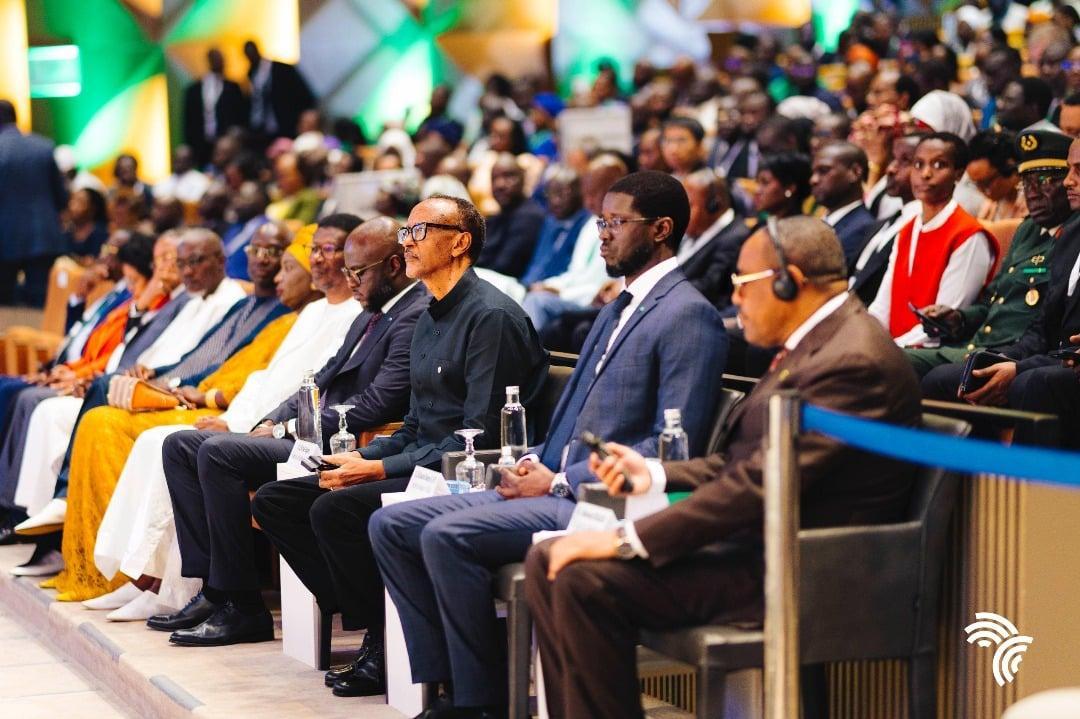Africa-Press – Malawi. The Africa Food Systems Forum 2025 (AFSF) opened today in Dakar with a resounding call from African leaders, development partners, and youth innovators to turn the continent’s vast agricultural potential into a driver of food security, climate resilience, and economic transformation.
Hosted by Senegalese President Bassirou Diomaye Faye, the five-day summit has drawn more than 6,000 delegates from 80 countries, including heads of state, private investors, researchers, civil society, and over 2,000 youth delegates. This year’s theme — “Africa’s Youth Leading Collaboration, Innovation, and Implementation of Agri-Food Systems Transformation” — puts young people at the center of Africa’s food sovereignty agenda.
Opening the forum, AGRA President Alice Ruhweza praised the progress of smallholder farmers adopting climate-smart technologies, women stepping into leadership, and young entrepreneurs reshaping agriculture through digital tools and startups.
“Africa’s agrifood systems are creating jobs, boosting exports, and moving towards a climate-resilient, environmentally sound future,” she said. “But we are still not there yet.”
Ruhweza pointed to the stark reality: Africa spends more than $70 billion annually on food imports, despite holding two-thirds of the world’s uncultivated arable land. The continent also carries a disproportionate share of the world’s 673 million hungry people.
The urgency aligns with the African Union’s Kampala CAADP Declaration (2026–2035), which targets a 45% rise in agricultural output, halving post-harvest losses, tripling intra-African food trade, and achieving zero hunger by 2035.
In his keynote, UN Under-Secretary-General and ECA Executive Secretary Claver Gatete warned that Africa’s “paradox of abundance” — rich land and resources but heavy dependence on food imports — must end.
“How can a continent that should be the breadbasket of the world remain unable to feed its own people? Implementation, not intention, will feed our people,” he said.
Senegal’s Managing Director Amath Pathé Sene highlighted the youth-first agenda, unveiling the country’s $22.5 million Community Agricultural Cooperative (CAC) as a Sahel flagship model. Unlike top-down approaches, the CAC is youth-led by design, with young people owning and managing agri-enterprises collectively.
Other commitments announced in Dakar include:
A $100 million blended climate-agriculture fund targeting youth-led agritech startups, co-created with AfDB, AGRA, and private investors.
Youth-focused adaptation grants.
AfCFTA-enabled trade finance.
New partnerships for digital agriculture platforms.
Beyond speeches, the summit has been structured as a marketplace for deals. Eleven African countries — including Ghana with its new “Feed Ghana” program and Mali with a youth enterprise drive — are presenting investment-ready projects in the Deal Room. More than 70 SMEs are pitching directly to investors to close the financing gap.
The Forum’s Knowledge Hub and Youth Dome showcase innovation, from insect-based protein ventures to solar-powered processing hubs and climate insurance tools. Meanwhile, the Culinary Village and Arbre à Palabres stage link food culture, cuisine, and storytelling to Africa’s sovereignty narrative.
The summit unfolds against a backdrop of mounting hunger, climate shocks, and political pressure for delivery. In West Africa alone, 33 million people face acute food insecurity — making this push for resilience and sovereignty urgent and practical.
President Faye captured the stakes:
“We have the means to feed our children and the world. Let us unite our will, mobilize our resources, and make food systems the engine of an African renaissance.”
As the week progresses, the test will be whether the Forum delivers beyond declarations. Concrete actions — signed investment term sheets, expanded partnerships, and national budgets aligned with the Kampala agenda — will determine if Dakar 2025 becomes the turning point where rhetoric finally gives way to results.
For More News And Analysis About Malawi Follow Africa-Press






